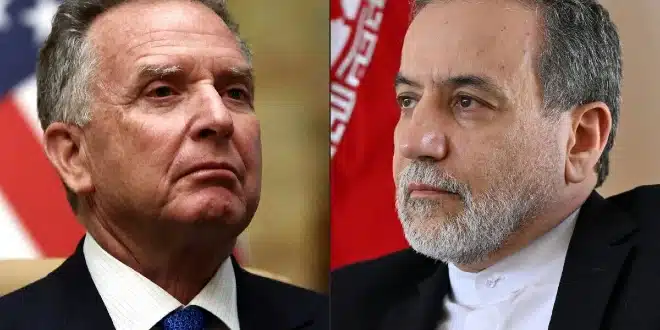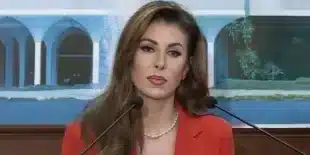After years of diplomatic silence and tensions, senior officials from Iran and the United States held a rare meeting on Saturday in Muscat, Oman, aiming to revive a nuclear deal. Iranian Foreign Minister Abbas Araghchi and U.S. President Donald Trump’s special envoy Steve Witkoff led the respective delegations. This marks the highest-level interaction since the collapse of the 2015 agreement, which Trump abandoned in 2018 during his first term.
Although the bulk of the talks remained indirect, both parties briefly engaged in face-to-face dialogue. Araghchi stated that both sides expressed urgency in reaching a new deal but acknowledged that the path forward would demand compromise and sustained effort. According to Araghchi, a framework for further negotiation was nearly established, and the two sides will reconvene next Saturday.
The U.S. described the discussions as constructive, while Trump commented that the negotiations seemed to be proceeding well, though he emphasized that nothing is final until an agreement is signed.
Strategic Goals and Political Stakes
Mediated by Omani officials, the dialogue took place in a discreet setting — the same luxury hotel where the 2015 nuclear agreement was previously brokered. Iran, currently under intense economic strain from sanctions and regional military setbacks, is pushing for relief and a fair agreement. Meanwhile, the U.S. is focused on ensuring Iran never develops nuclear weapons, especially in light of its support for Hezbollah and Hamas, both under pressure from Israeli military campaigns.
Despite the tension, Witkoff signaled openness to negotiation, telling U.S. media that while dismantling Iran’s nuclear program remains a baseline demand, there could be room for flexibility — as long as Iran does not pursue weaponization.
President Trump’s announcement of the meeting earlier this week alongside Israeli Prime Minister Benjamin Netanyahu underlined the geopolitical weight of the talks. Trump reiterated that military action remains on the table should negotiations fail, a position echoed by Israeli leadership.
Iran’s Nuclear Progress and Domestic Pressures
Since the U.S. withdrew from the 2015 deal, Iran has ramped up its nuclear enrichment. The latest data from the International Atomic Energy Agency indicates that Iran has amassed close to 275 kilograms of uranium enriched to 60 percent — dangerously close to weapons-grade material.
Iranian Supreme Leader Ayatollah Ali Khamenei’s adviser, Ali Shamkhani, emphasized the country’s desire for a practical and fair resolution. Analysts suggest that the regime is prioritizing its own survival through economic stabilization and sanctions relief, especially amid growing domestic discontent.
With both sides entrenched in their core positions but showing signs of cautious optimism, the coming rounds of negotiations will be pivotal in determining whether diplomacy can defuse one of the region’s most dangerous flashpoints.


